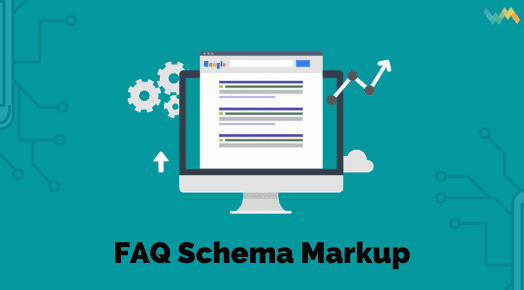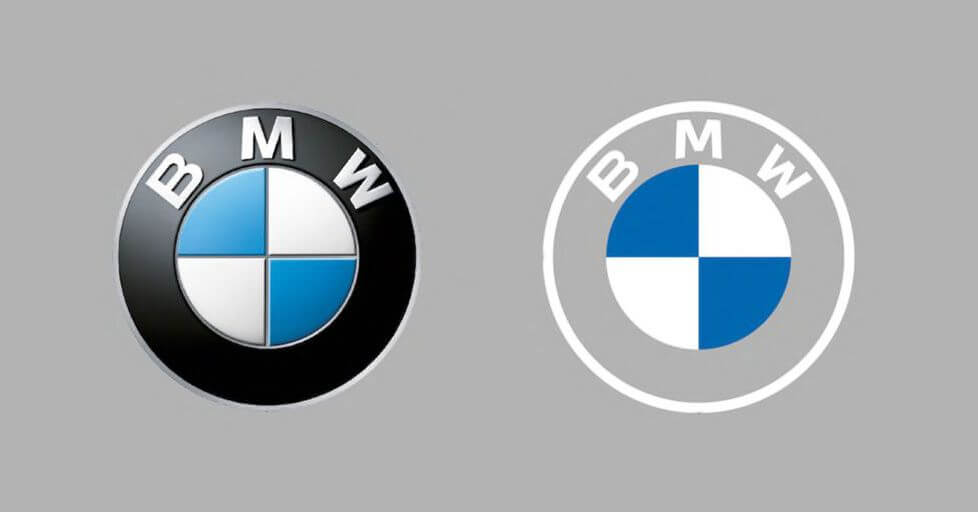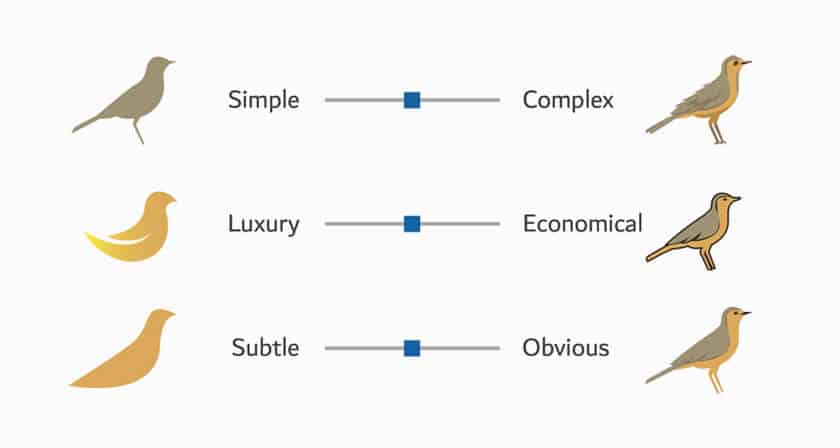Do you have any idea about Schema.org and Schema Markup? Well, if you arrived on this page, then the majority of you might have a little bit of a picture of the same, but surely you want to learn about this concept in detail. How to use it to enhance the connectivity with the audience and get a better ranking on Google? FAQ Schema Markup is something that will improve your chances of getting better visibility on Google search results. The sad part is that less than one percent of businesses are able to grab the benefits of FAQ schema markups. Yes, you heard it right.
Now the question is – why are people not using this way to get superior results for their business! It might be due to a lack of awareness. A reasonable schema markup results in getting more clicks on your website by reducing the overall bounce rate. The exact figure related to the same is around 30%. It means you will get 30% more clicks on your website, which in turn leads to more profits. But you need to know that Google has tightened FAQ markup guidelines, so make sure you go through that too.
All you need is to implement schema markup for your FAQ page, and you will get better results in terms of website authority as well as website visibility. But before that, you need to understand the basic meaning of the FAQ Schema and how it will help you with your SEO.
What is FAQ Schema?
When you want search engines to know that your website is presenting data in the question and answer format, you mainly use the FAQ schema available in the form of code that you need to place on your site. The best part is this makes your web pages eligible for the rich snippets in the search results, or you might get a chance to appear on the Google Assistant searches. This directly leads to enhancement in traffic to your website. Yes, it can be counted as a shortcut to grab better visibility in the SERPs, but still, it is underused for SEO.
Without a doubt, your website will return better results for consumers using a piece of code. Whenever a user searches for something, your content may show up and lead the traffic to your website. There can be seen an overall improvement by providing context to the content.
Improving Performance with FAQ Rich Snippets!
After understanding the meaning, you might be thinking about how or where to place the FAQ schema markup on your site. Well, you can either form an entire FAQ page for your website or add a FAQ section on some pages of your website. You may find these two conditions the same, but there is a big difference in both.
You need to keep in mind that FAQ pages often get less attention as well as rank. If a person is visiting there, it may be because he or she is navigating your website. The reason behind that is these frequently asked question pages hardly focus on any keyword, and search engines are all about the content that answers the search queries. Furthermore, the content is informative, not promotional. But these pages support a noticeable impact on your SEO. By adding this section to your website, you can eliminate half of your visitors’ doubts about your product range and services, making an impressive impact.
How to validate FAQ Schema Implementation?

You need to follow a three-step procedure while validating your FAQ schema implementation.
1. TEST: With the help of Google’s Structured Data Testing Tool, you can check whether the implemented code on your page is right or not. This testing tool will help you know the status of your code snippet and the page URL.
2. PREVIEW: Using Google’s Rich Result Tester, you can get aware of the eligibility of your web pages, whether they are qualifying for the rich results or not. It will also give you an idea of how your data will look in SERPs.
3.RECRAWL: Last but not least, you have to request Google to re-index your web page once you add the code and run the test. This will be the final step of this segment.
You will find results really quick in some cases, especially when you are using the web pages that are already ranking good on Google.
How Does FAQ Schema Can Benefit Your SEO!
There is no doubt that FAQ Schema has a direct impact on your SEO results. Here we are mentioning some of the points that will highlight the significant improvements that the FAQ schema can make.
a.) Rich Snippets:
Every person wants its website content to be featured in snippets, but it is not an easy job to do. To be exact, it will take years for your fruit of labor to show results, even if you implement all your structured data properly. To that context, FAQ rich snippets are an easy way out. Yes, there is no guarantee of sooner results, but it is also a fact that Google is very quick in picking the FAQ structured data, compared to other types of structured data.
b.) Use Snippets to dominate SERP:
One of the best reasons why FAQ snippets are so helpful is that Google directly shows them on search queries. Nowadays, Google shows three FAQ results for a regular query, but yes, there can be four FAQ results in some instances. This all depends on your markup needs that can support four questions. Other than that, if a user selects ‘show more,’ then he or she will be able to see more inquiries related to the same query.
c.) Improving CTR:
Obviously, you want your web page to appear on SERPs, but there is a need to justify the FAQ schema at one point or the other. Considering a case study, it was found that people have seen more than 50% of increment in their CTR after implementing the FAQ schema. This automatically enhances your chances to get more clicks as you are offering your audience valuable content. To add the cherry on the cake, you also get to create hyperlinks in your dropdown answer copy.
There are a few things that may go against you in this process. Never reveal the prices in your FAQ schema even if asked, as this will turn off most of the users. In case your products and services are on the expensive side compared to your competitors, it will probably reduce the overall clicks.
d.) Generates Higher Quality Leads:
Whenever you work with the leads, you will get to work with two types. Firstly, there are leads that convert, and then there are leads that don’t convert. You need to make up your mind which type you want. FAQ schema proves really helpful in putting the odds in your favor. With the help of questions and answers, you can give your audience an overall idea of what they will get after clicking on the link. All you need is to add valuable content as required by the audience because follow-through is also important after clicking as it will affect your website’s bounce rate. In short, FAQ schema markup is not only profitable but also improves the outcomes of your SEO as well as CRO.
e.) Role of Voice Search:
Nowadays, voice searches are very much in trend as most of the queries are entered in the smartphones through verbal interactions only. In the 21st century, FAQ schema proves to be the best asset for your business as your questions-answers will appear on the top of the searches. You must have known about Alexa, Siri, Google Assistant, and more. These are the latest things in the trend. People love to ask questions by interacting with these devices, and if that relates to your FAQ, then AI’s answer will markup in your data.
Which pages can the schema markup be applied to?
It becomes imperative to understand the content guidelines of Google when you want to add the FAQ schema markup. Foremost, your web page must have a list of questions along with their respective answers. If you want the user to add or eliminate any content of your answer with the editing purpose, you need to follow a different type of markup. Similarly, for adding QAPage, you need to use another schema markup. It totally depends on your choice.
Valid uses of the FAQ schema markup:
The FAQ page of your website does not allow any user or reader to alter the answers. It is only for viewing purposes. Plus, the users cannot write different responses to the questions in the FAQ section.
Invalid uses of the FAQ schema markup:
This category allows the users to submit their own answers to the questions on the product support pages. This also includes product pages, forum pages, etc. One of the major restrictions as per the Google guidelines is you can’t use the FAQPage schema markup for advertising reasons and marketing purposes.
Other than that, there are certain subjects for which the question and answer will not be displayed. This includes the different types of content: sexually explicit content, illegal activities, graphically violent stuff, and a lot more. This brings to the next question, i.e., what type of content to be included in the FAQ page of a website!
Things to include in the FAQ Content:
Surprisingly, the process of implementing the FAQ schema markup is not that tough. All you need to keep in mind is the content you are using for the FAQ section goes well along with the SEO factors. For that to happen, you need to follow some guidelines.
I.) You need to choose a relevant topic that can complement your website theme.
II.) Another important thing is the layout of the page.
III.) Then you have to concern the readability factor – Is your content easily understandable?
IV.) You also have to select the right font choice along with the color and size. Make sure that the audience can easily understand and develop an interest in your content.
Lastly and most importantly, you need to work on the quality of content. The answer to a specific question should be exact, in-depth, and useful to the reader. Try to keep the word limit in a range of 50 words because it’s not about how many words you write; it’s about the quality.
Bottom Line:
Despite having several benefits, the concept of FAQ schema markup is not used much. Only a few websites have succeeded in grabbing the benefits of the same for their SEO. Well, it is often seen that businesses usually pay more focus on metrics and technical issues of SEO and neglect the other essential aspects that can also play a significant part. Without a doubt, content is the ultimate king when it comes to determining page rankings. Similarly, the addition of FAQ schema markup can uplift your website’s visibility factor and improve the authority.
Leave a Reply
Your email address will not be published. Required fields are marked *
This content was originally published here.


